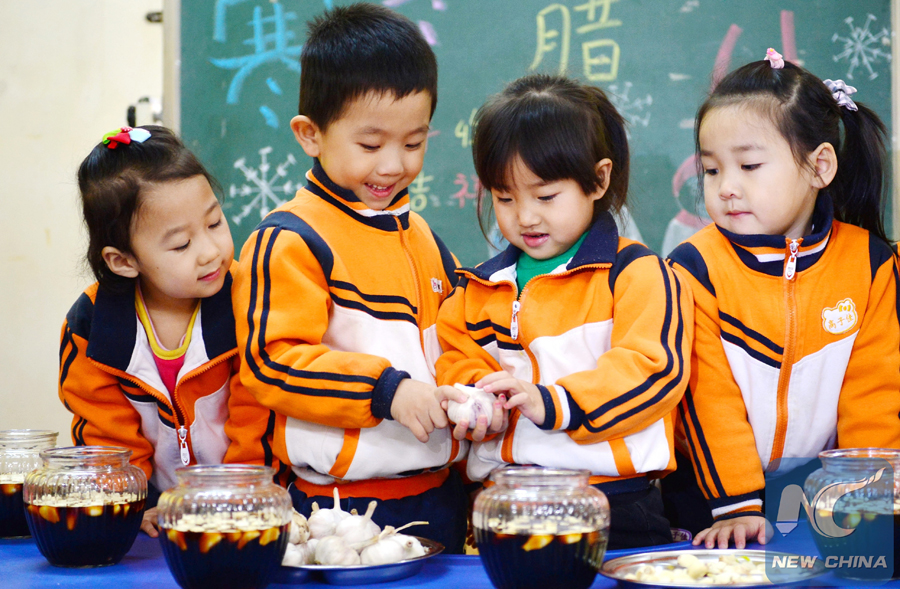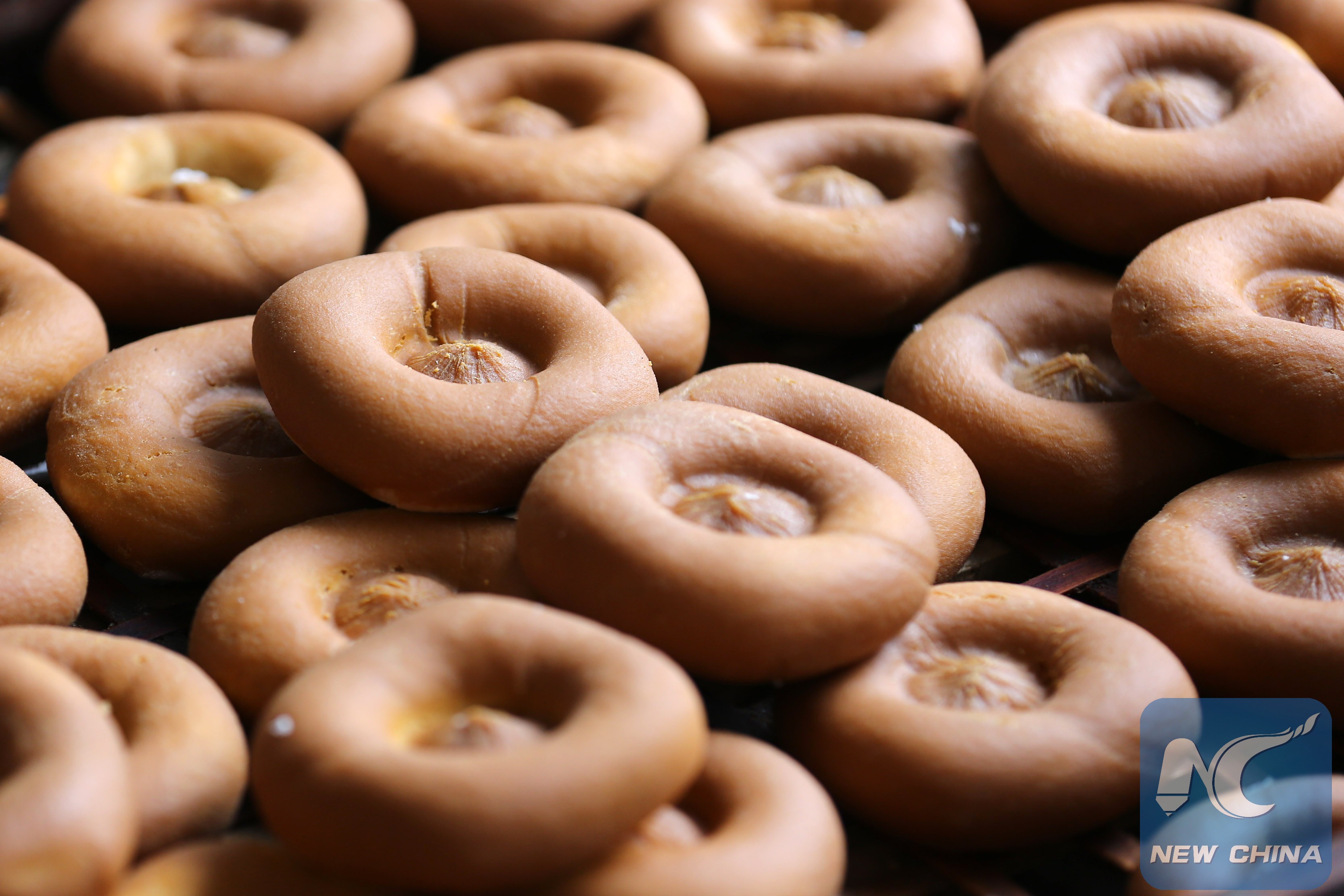
Children learn to make the Laba garlic in Xingtai, north China's Hebei Pprovince. (XINHUA photo)
The Laba Festival, celebrated on the eighth day of the 12th lunar month, falls on January 24th this year. It is traditionally regarded as the prelude to Spring Festival, reminding people to start their preparations for the coming festivities and for wanderers to return home and reunite with family. The ancient Chinese custom was to sacrifice dried vegetables and meat to Baguxing, the god of agriculture to pray for a good harvest on the next Laba festival.
Laba Festival is also known as Laba Zhu. In Chinese, zhu has a similar pronunciation to zhou, meaning porridge, so many eat porridge on this day. The Laba porridge generally contains at least eight ingredients, a fortuitous number in Chinese culture. There's a wide variety: glutinous rice, red beans, millet, Chinese sorghum, peas, dried lotus seeds and some other materials like dried dates or chestnut meat.

Monks in Leiyin Temple carefully select ingredients of the Laba porridge in Pingdingshan, central China'a Henan Province. (XINHUA photo)
In the Buddhist tradition, eating and sharing porridge commemorates the legend of Sakyamuni, saved by a girl who gave him a bowl of milk on the day he attained understanding of the truth of life and became a sage. Many temples today have the tradition of giving out Laba Porridge to the public.
The festival is also the day for people to put garlic in vinegar, to pickle for more than 20 days before the Chinese New Year. The garlic turns emerald green, and this Laba garlic will be eaten with dumplings on Chinese New Year's Day.

The Laba tofu made by workers in Qian County, central China's Anhui Province. (XINHUA Photo)
Customs vary across the country. People in Qian County, Anhui Province will eat the Laba tofu basked several days before. In Xining City, Qinghai Province, the locals will eat wheat kernel rice boiled with beef and mutton.
So, how about you? Are you ready to have a bowl of porridge?

